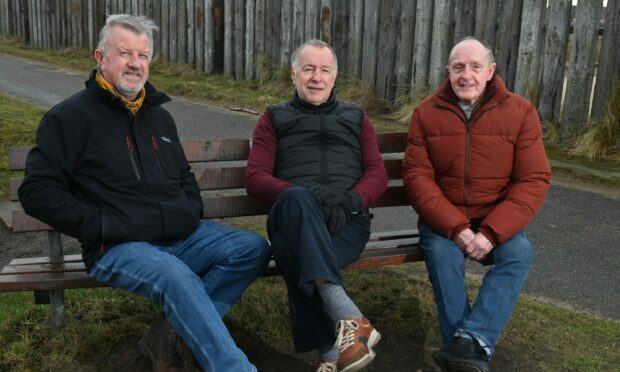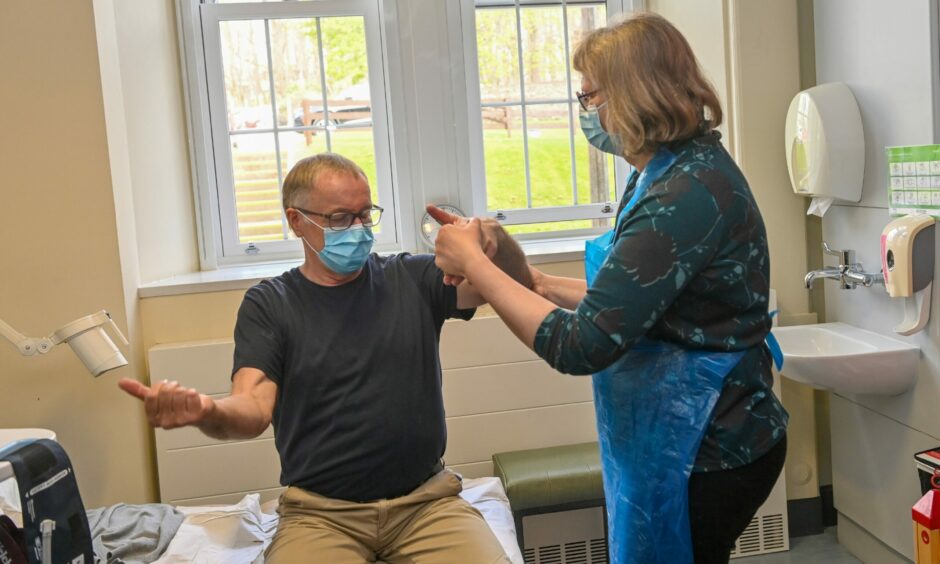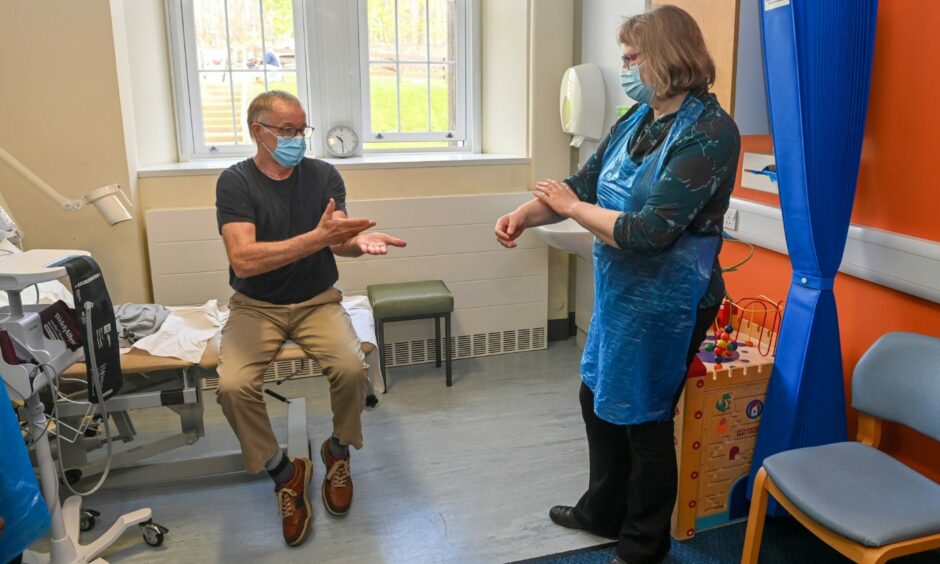Families with the incurable Huntington’s Disease gene in Moray have backed pioneering research with cash that could help people across the world.
The genetic condition has passed through countless generations with parents having a 50% chance of passing it to their children.
Northern Scotland is believed to be a global hotspot for the disease with it being five times more common in the region than the global average.
Huntington’s solidarity in Moray
Families in Moray came together in 2018 to provide support and solidarity to those diagnosed with the genetic condition and their loved ones.
The group was initially set up to share advice and practical tips on how to cope with the increasingly debilitating disease, which leads to the gradual loss of being able to talk, walk and perform simple tasks as well as causing behavioural changes.
However, quickly after being established the campaigners began collecting donations from tireless fundraising to also be used to support families.
Campaigners have now donated £2,000 to support the work of Aberdeen University genetic specialist Professor Zosia Miedzybrodzka, who is conducting research as part of a global Huntington’s Disease (HD) trial.
Brian Watt, a member of the Moray group, was diagnosed with the condition in 2016 and is taking part in the 18-month Huntington’s research study.
The Hopeman resident is one of nearly 500 participants across the world, which includes six Scots, who are taking two tablets twice a day as part of the Proof-HD trial.
Mr Watt also visits Professor Miedzybrodzka regularly for cognitive tests to assess whether the drug is halting the progress of HD.
Mr Watt explained the group was also supporting local families but felt passionately about supporting research that could help HD patients across the world.
‘Every penny makes a difference’
He said: “Trials like these are what give families hope that one day there will be a cure.
“Our priority is always to support local families and the national Scottish Huntington’s Association, but we had some extra funds and decided it was better being put to use.
“We have a specialist HD nurse in Moray who lets us know if there are families struggling needing assistance, for instance there was a young girl who recently moved into sheltered housing that we supported.
“The research isn’t going to help me. I’m in my 60s and had a good life, but we want to provide a lifeline for the next generation.”
Professor Miedzybrodzka, who is Aberdeen University’s professor of medical genetics, explained the money from the Moray Huntington’s group was “highly valued.
She said: “The funding will go towards research nurse time to expand the number of studies we can take part in, and will support a locally based study we are starting with the Rowett Institute on nutrition in Huntington’s Disease.
“We are very, very grateful to families who support our research programme through NHS Grampian charities, and want to just indicate that every penny makes a difference.”



Conversation